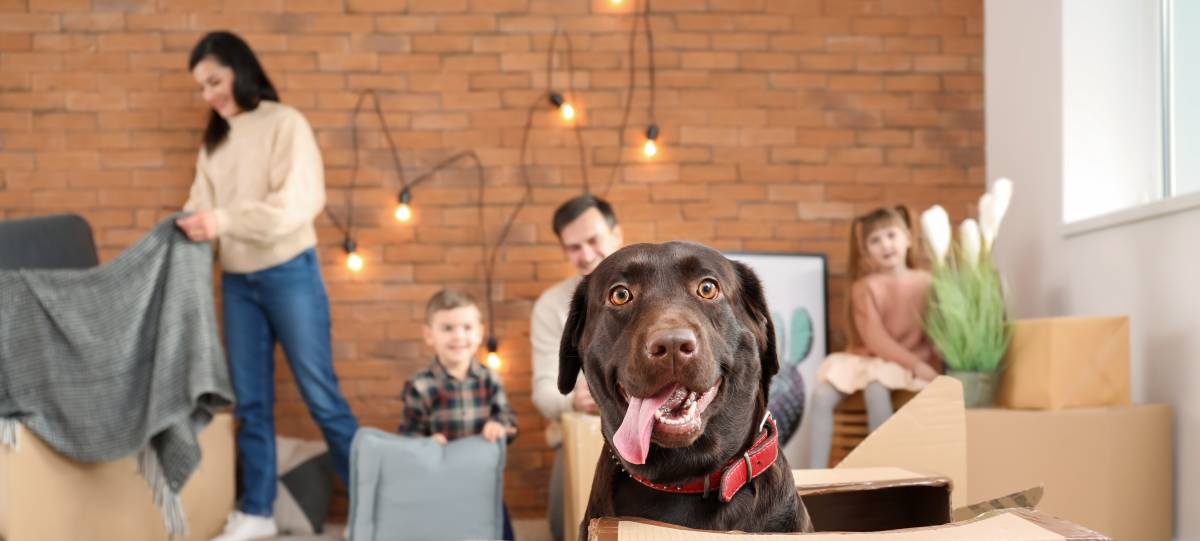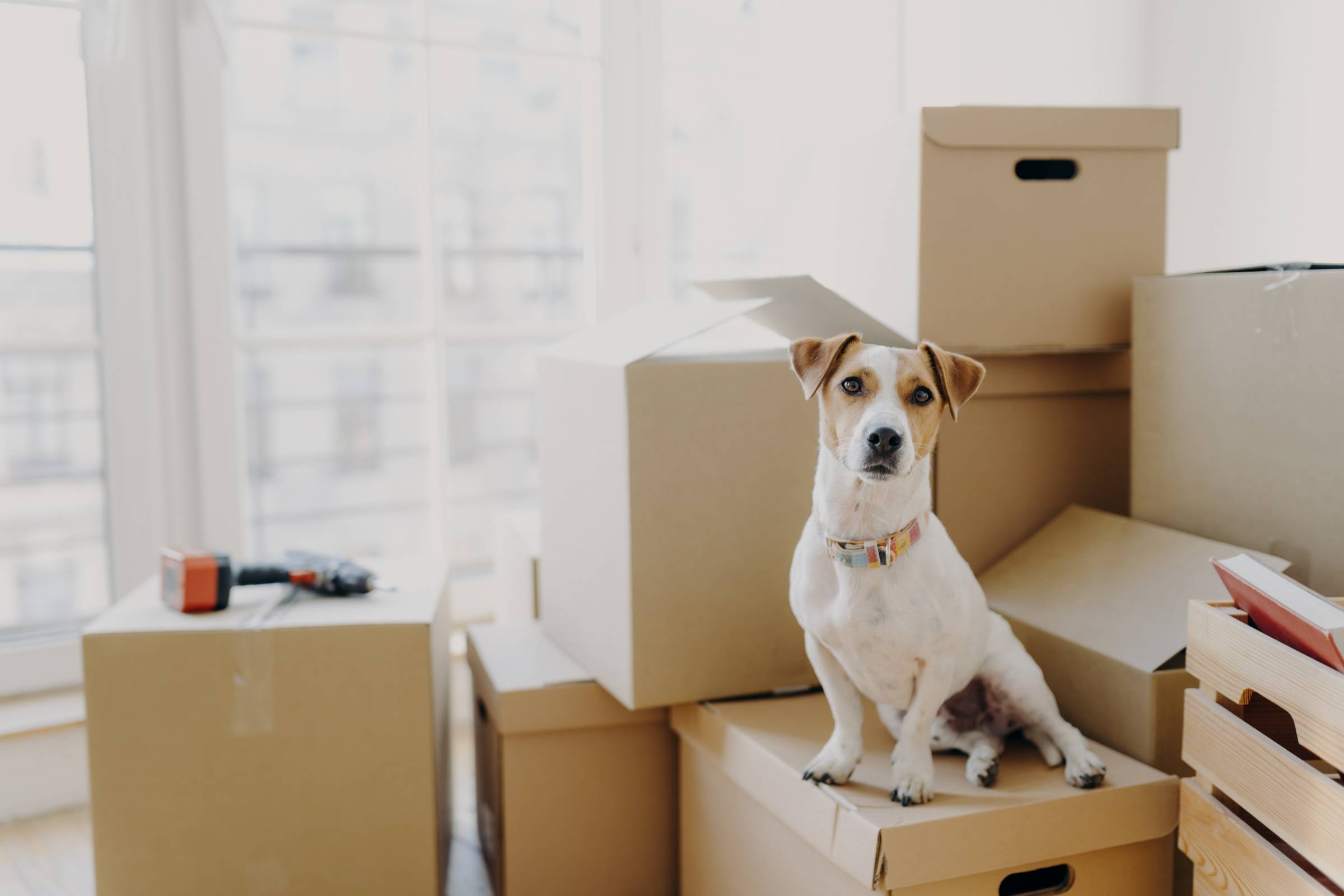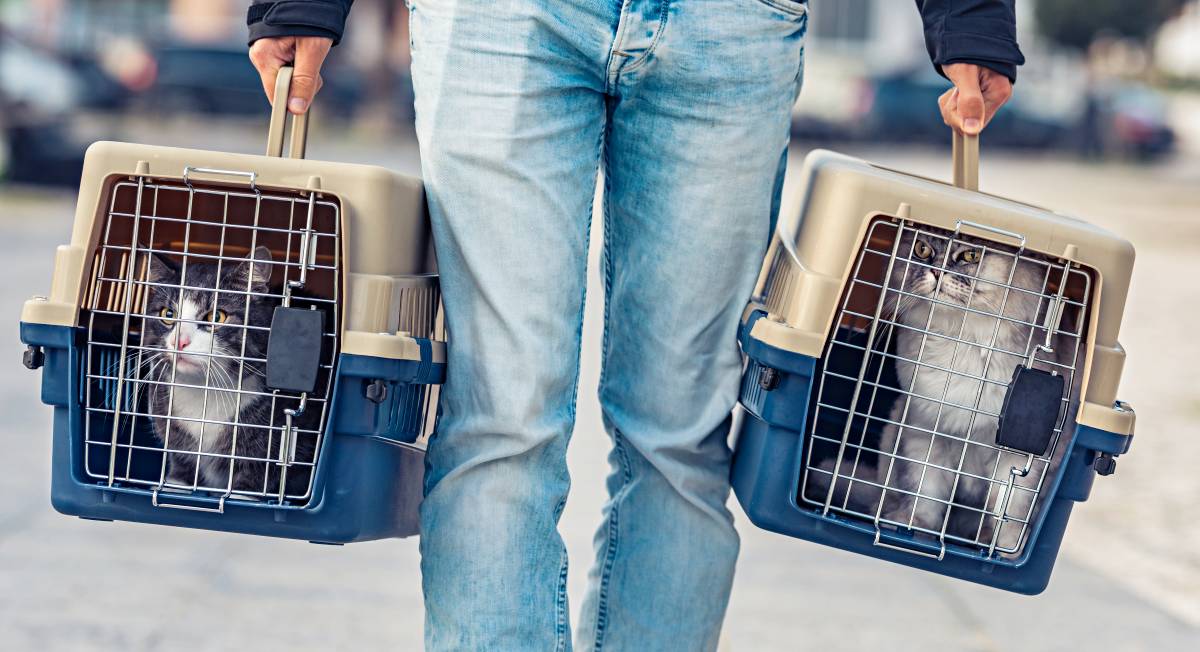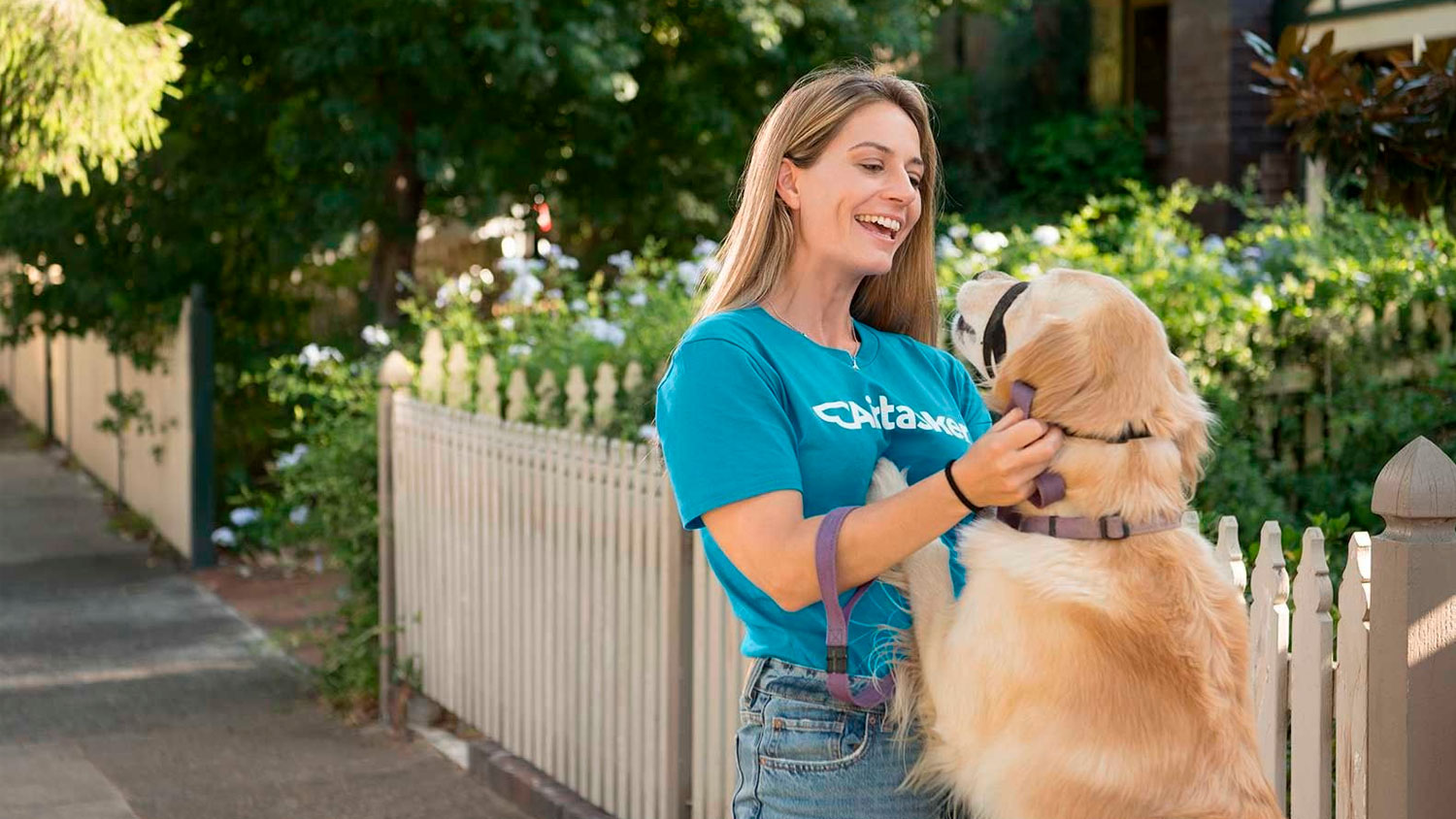
Cats or dogs? The ultimate cost guide to owning a pet
Can't decide which pet to own? Learn from local pet experts in our community!
Join Airtasker today!Last Updated on
Owning a pet is like having a best friend in the comforts of your own home. They provide companionship, reduce stress, and are somehow always there when you need them the most. When the COVID-19 pandemic struck in 2020, the United Kingdom saw an increase in pet ownership, which was up 3.2 million in March this year compared to March 2020.
According to the Pet Food Manufacturers’ Association, 59% of UK homes have pets with 33% of households having dogs and 27% of households owning a cat.
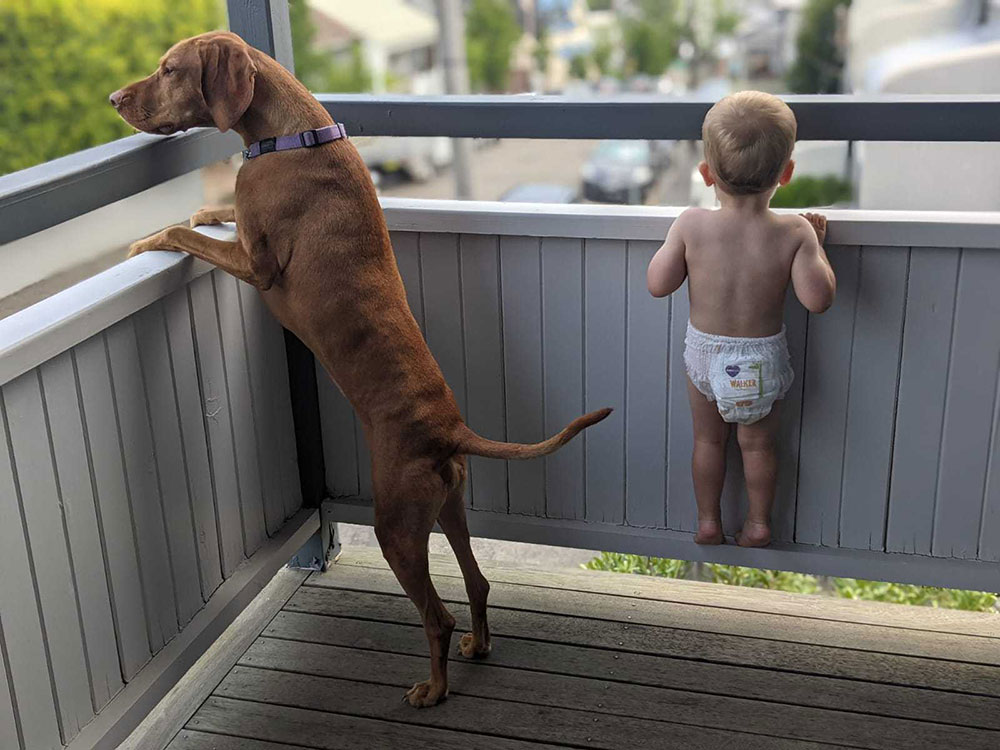
However, owning a pet isn’t that simple. Taking care of one can be expensive so it’s vital to financially prepare yourself for this commitment. So, the big question is, how much does it cost to have a dog or a cat?
According to the People's Dispensary for Sick Animals (PDSA), the total cost of owning a dog or cat can range from £370 and £250, respectively, in the first year alone, with recurring expenses monthly and annually.
The road to owning a cat or a dog may not always be purr-fect but becoming a pet owner is truly rewarding. The journey begins by asking yourself, “Should I get a cat or dog?” Although the cost of having a cat is more affordable, finances may still vary for both depending on how you choose to take care of them. Here’s a breakdown of costs you need to prepare before getting a pet.
To buy or to adopt?
The annual cost of a dog ranges from around £445 to £1,620 per year, while the annual cost of a cat starts at £245 to £710. The factors that you need to consider include where you plan on getting a pet, what kind of food you intend on feeding him, how often you’ll take him to the groomers, the amount of medical costs, if you’ll consider purchasing pet insurance, and even how much toys you plan on giving him.
Deciding to buy a pet
If you decide to buy, you can get a dog or cat from either a pet store or a breeder. A pet store is usually the top-of-mind choice for first-time pet owners, however, some pet stores acquire their animals from high-volume breeders that may prioritise profit over the welfare of animals.
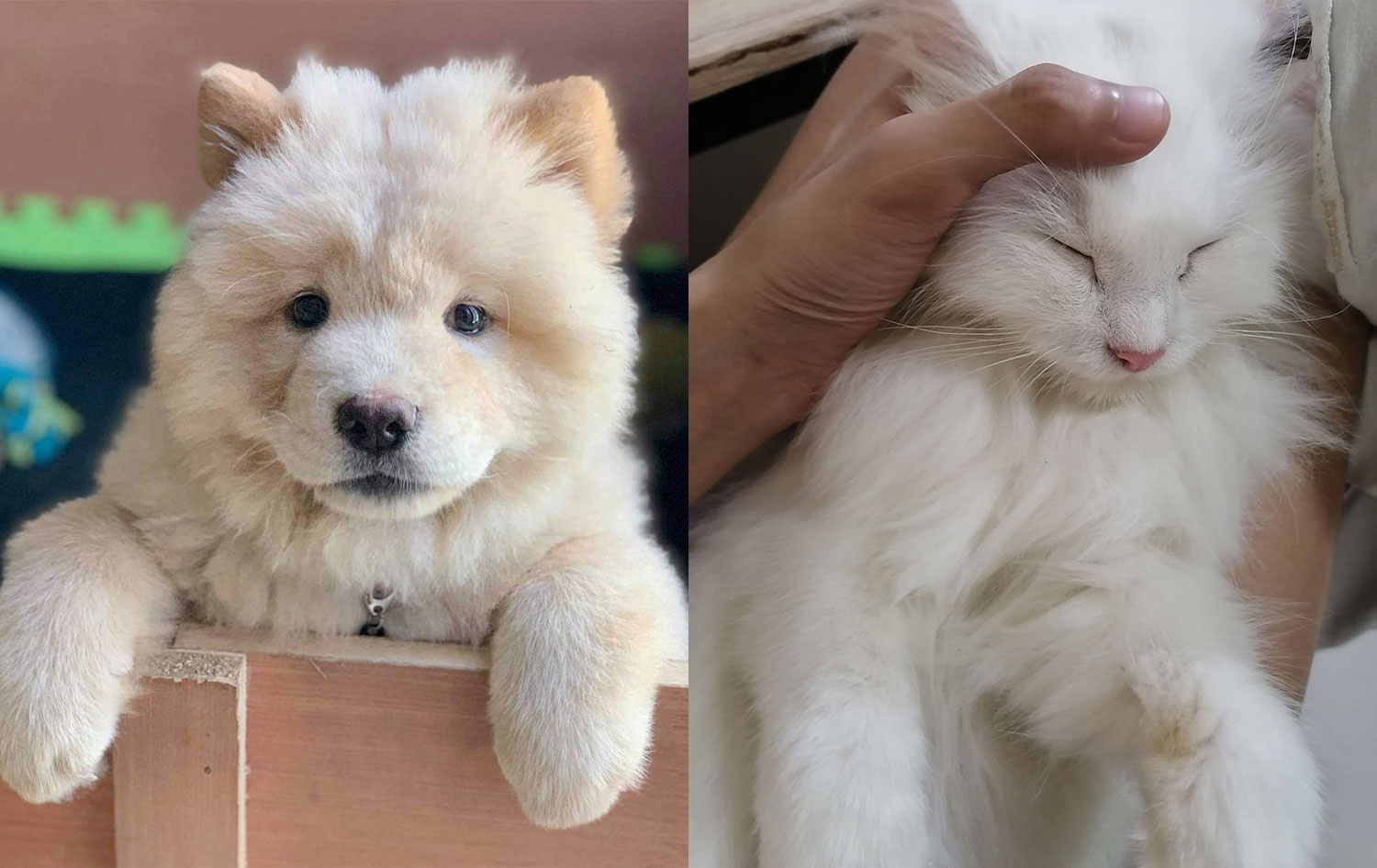
In 2018, Britain banned the third-party sales of puppies and kittens from pet shops in a battle to eliminate exploitative and unethical animal breeding operations.
If you’re looking for a specific breed or a purebred cat or dog, the best option is to purchase from a legitimate and licensed breeder. Licensed breeders in the UK follow strict regulations to ensure the best ethical practices in raising animals before being sold. And since breeders raise animals from birth, early handling and socialisation are introduced right away.
Depending on the dog breed, prices can start from £400 to £3,000 or even higher. Meanwhile, cat breeders sell pedigree cats from £200-£2,000, while non-pedigree cats are sold for less than £200.
Before purchasing, always check the reputation of the breeder to avoid falling victim to pet scams.
The pandemic has seen a rise in online purchase scams, pets included. Be wary and cautious of pedigree dogs being sold at a low price or sellers refusing personal pickups. If the deal seems too good to be true, it probably is.
Deciding to adopt from a shelter
Adopting from a shelter is another option that is not only an affordable alternative but can end up being incredibly rewarding.
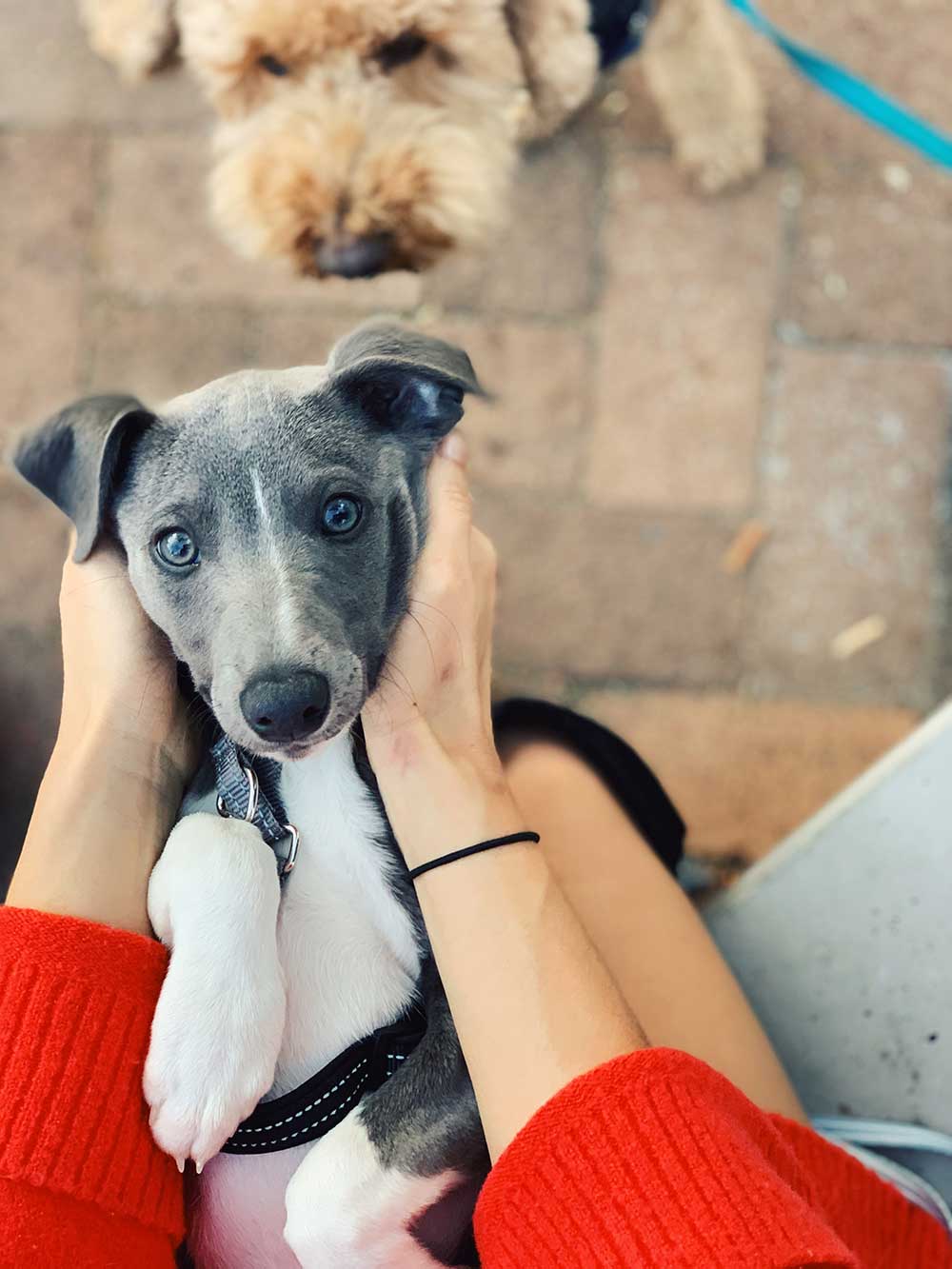
Animals here are usually rescues that have been through difficult times before being brought to the shelter. Much like licensed breeders, shelters take good care of their animals by providing a loving and nurturing environment before sending them to their fur-ever homes.
Adoption begins by selecting the pet you’d like to take home. The Royal Society for the Prevention of Cruelty to Animals (RSPCA) has an online directory that can help make choosing easier for you. Once you’ve chosen a pet, you can submit an application to the centre where the pet is currently homed and undergo a screening process. This process includes staff from the shelter reading through your application, conducting interviews, getting introduced to the pet, and possibly requesting a home visit. All this is to make sure that you and your pet are the perfect fit for one another.

If the shelter sees that you and your selected pet are a good match, it’s time to take home your new friend. This process ensures that the pet is coming home to a loving family, hence reducing the risk of abandonment and other ethical issues.
Adoption fees for dogs can range from none at all to £200 depending on the shelter, breed, and age. The rehoming fee for a cat averages around £80. This cost covers medical care, which includes food, shelter, transport, and vaccinations.
Adult or senior pets are generally cheaper to acquire and take care of, while kittens and puppies are pricier. Kitten and puppy cost ends up being more expensive in the long run since you’re caring for an animal from childhood to adulthood.
What are the ongoing expenses of owning a dog?
After deciding where you’re getting your pet, here are some of the basic dog expenses you need to prepare before taking in a four-legged friend.
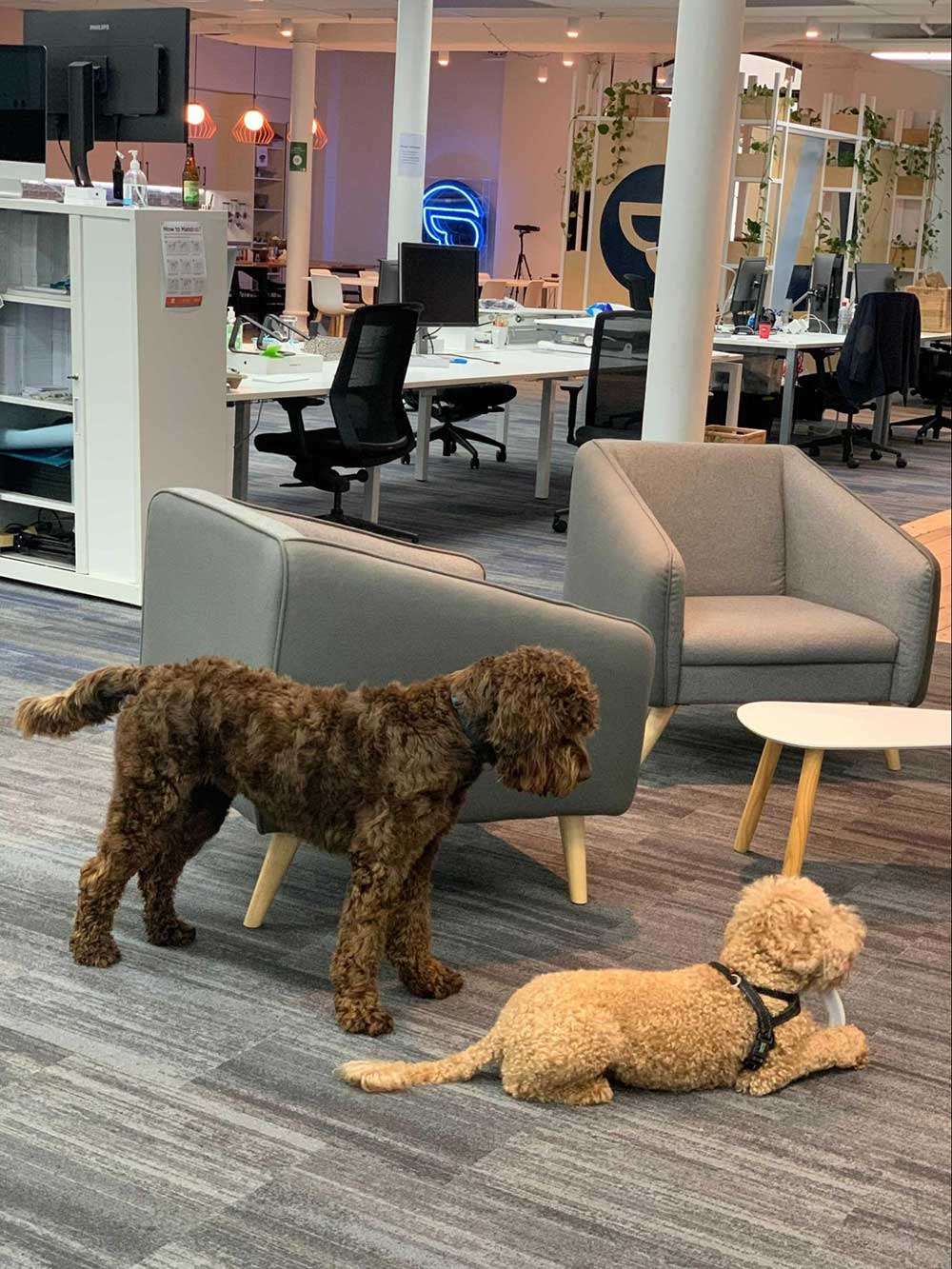
Medical Costs
Much like humans, dogs also need to get vaccinated so they don’t contract diseases. In a dog’s first year, he will need a multitude of vaccines, some of which need to be renewed periodically. The core vaccines a dog needs are for DHLPP—distemper, hepatitis, leptospirosis, parvovirus, and parainfluenza. It is also helpful to vaccinate your dog for kennel cough, heartworm, lyme disease, and coronavirus. Dogs need to get vaccinated for rabies and must be renewed every 1-3 years.
Shots cost between £100 to £150, while a rabies vaccine averages at £51. Animal shelters may charge less for vaccines, while adopted dogs would most likely have already been vaccinated.
A task that most pet owners forget to take note of is meticulous dental and ear care for their dogs. Dog ears are fine with a simple wash and swab, but a deep clean also prevents complications.
Although dogs have strong teeth, they also require treatment and attention. Plaque and tartar buildup can lead to gum disease, weak enamel, and even early toothlessness. Veterinary ear and dental care can cost around £200 a year.
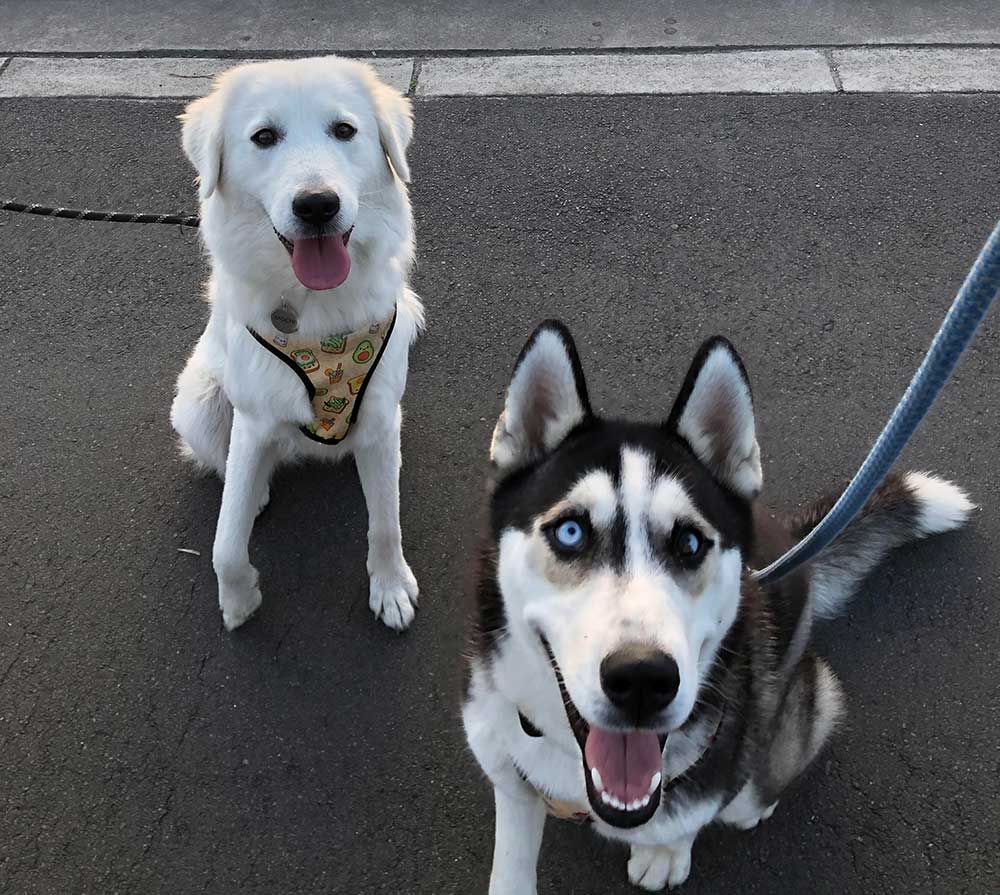
Fleas and ticks can be uncomfortable for your dog and, worse, can even carry diseases. Flea and tick prevention can range from £60 to £95 annually, with products such as shampoo, topical solutions, and oral medication.
Dogs also need routine worming treatments to eliminate any internal parasites. This is most important for puppies since they are the most at risk. They need to get their initial worming as early as two to three weeks old. When they reach adulthood, regular de-worming must be done three times a year for the entirety of their life. A dog wormer will cost around £10- £15.
Spaying or neutering your dog can cost from £350 to £550. Adopted dogs would most probably have been spayed or neutered by their shelter.
It's important to visit your vet regularly for a routine checkup. You never know when any underlying issues may be developing without notice. Vet fees for dogs start at around £100 on average.
Dog Grooming
Grooming is more than just making your dog look good but feel good, too. Matted hair and long fingernails can bring discomfort and misery to your pets.
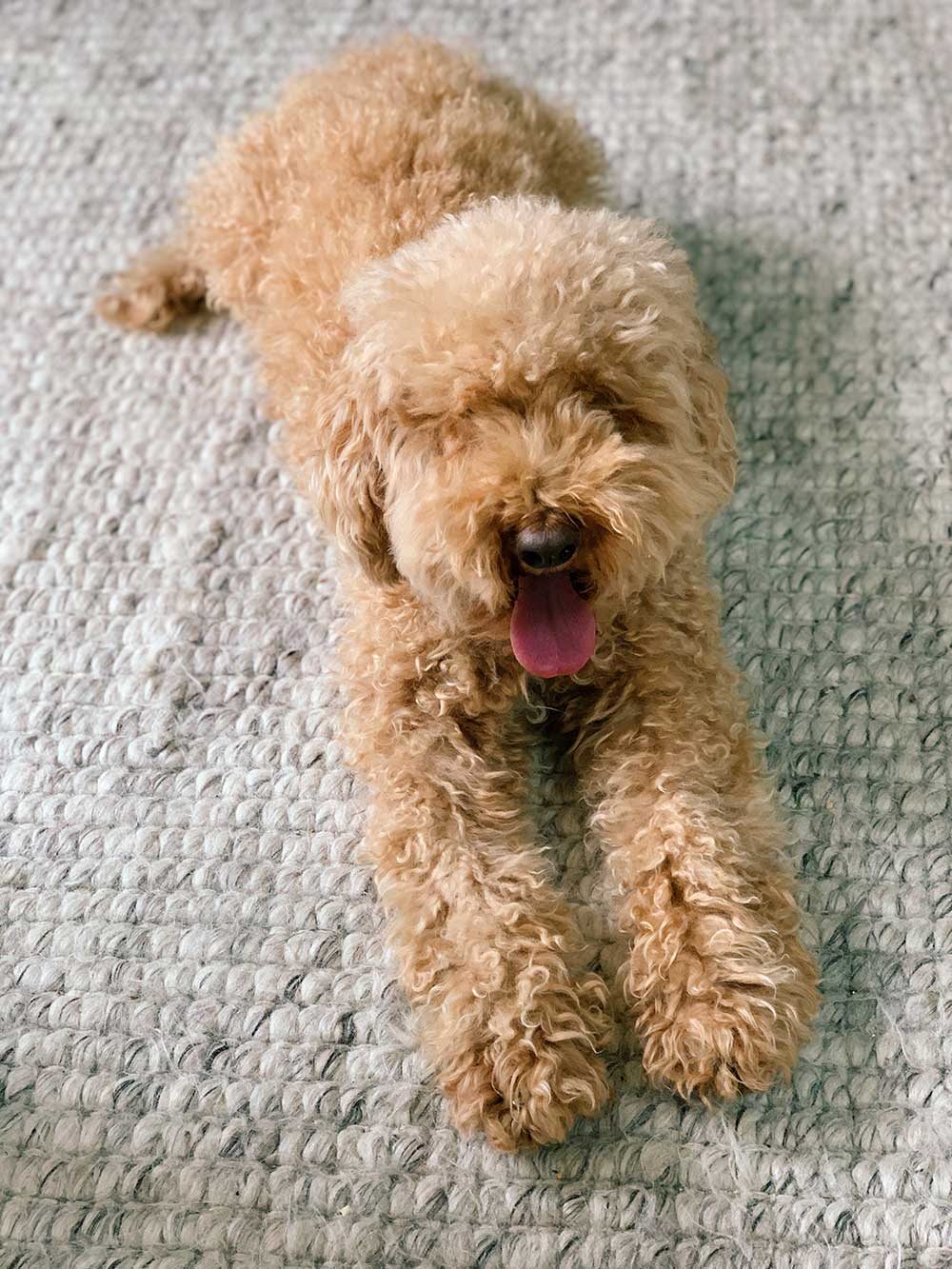
The cost of a dog per month can increase when you factor in dog grooming expenses. If you happen to have a hard time bathing your dog, the going rate for a full grooming treatment that includes a bath and hair and nail trim costs between £18 to £80. If you manage to bathe your dog yourself but find it difficult to trim his nails, a trip to the groomers for this service can go £15 or less.
Grooming expenses vary depending on how often you should wash your dog. Some dog breeds can go months without a bath, while others only need a week before stinking up your home.
Dog Training
Dog training is an essential activity that builds your dog’s behaviour by instilling obedience and establishing routines and habits. Teaching your dog to pee outside can already save on the cost of cleaning a damaged carpet!
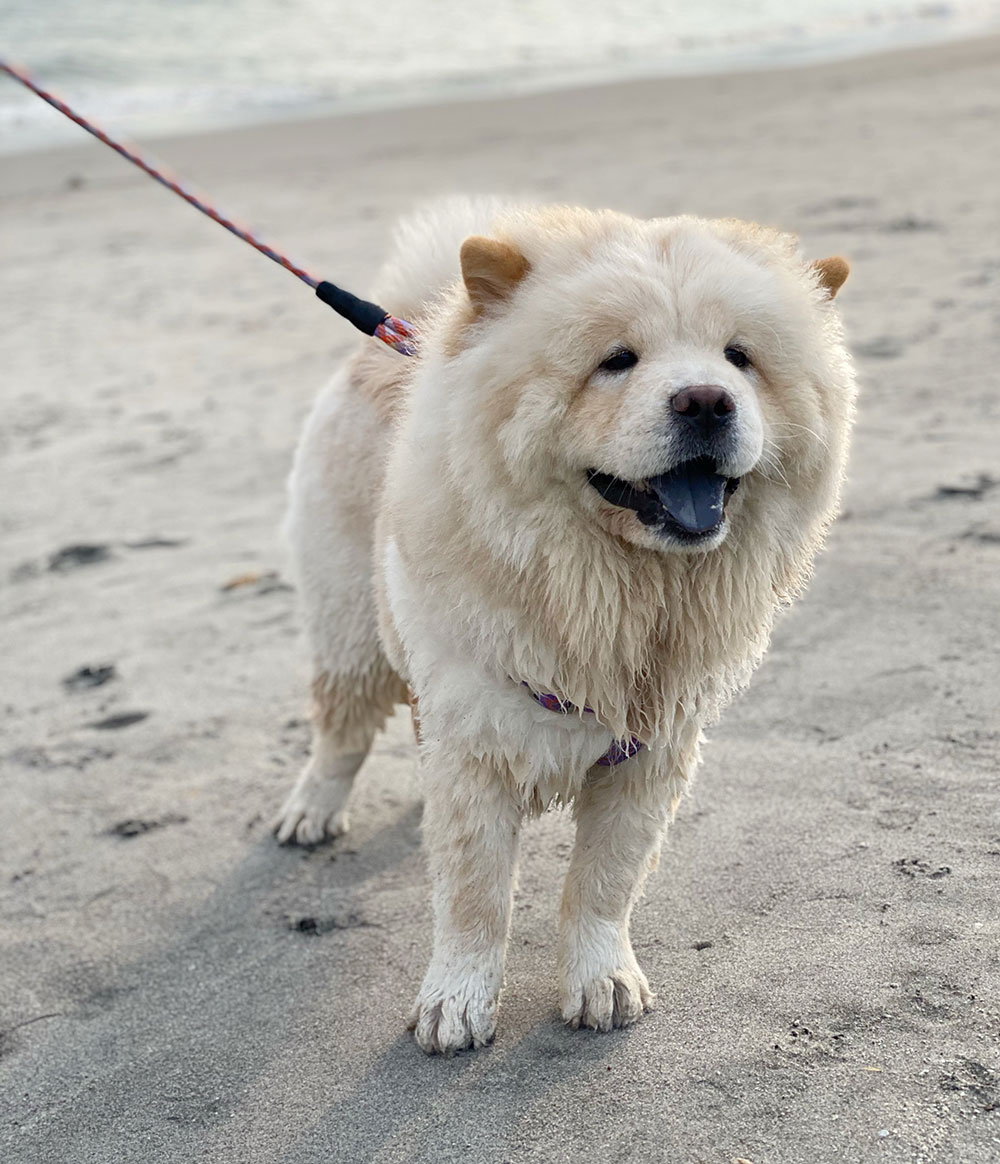
Training your dog yourself is the most cost-efficient option. The money you save is spent on more quality time with your pet. However, not everyone has the time or patience to go through every trick in the book to keep their dog still.
A dog training session can cost £80 for an hour or two. The younger you train your dog also cuts costs since puppy training lessons come cheaper than adult training classes.
Dog Food
One of the other things that add up to the monthly cost of a dog is what you feed them. Food costs can range widely from £190 to £950 per year, depending on the size of your dog, how much they eat, and what kind of food you give them.
The cost of dog food varies depending on the type. Regular dog food, canned or dry, is usually cheaper versus an all-premium diet. A raw food diet, where you’re essentially feeding your dog meat and bones, can cost up to £2,500.
Dog Equipment
Making your dog feel at home incurs a variety of costs as well. If you plan on letting your dogs play outside on the lawn, it’s best to install a pet door or put up a fence to keep them safe and prevent them from running astray. This is especially important for larger breed dogs since it is not easy to chase after them down the street.
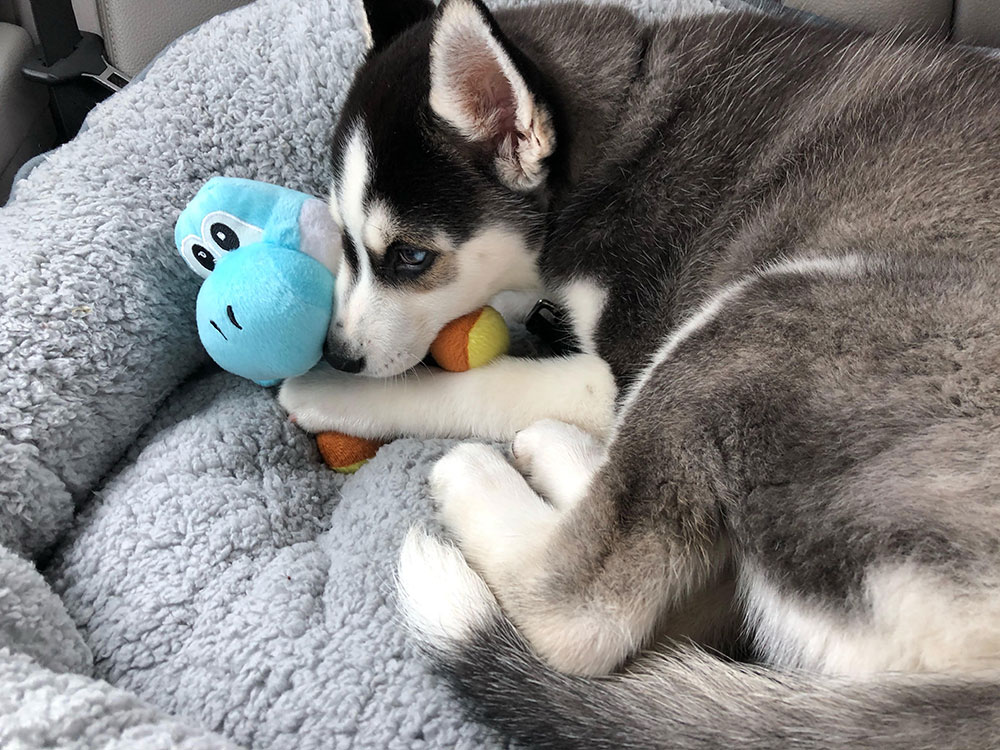
Basic necessities such as food and water bowls, a collar and leash, and a crate are some of the first things you should buy. Investing in good quality bowls makes them last longer from puppy to adulthood. A collar helps identify your dog if ever they get lost and a leash keeps them close to you when you go out for walks. Getting your dog a crate doesn’t mean you’re locking them up but can be used when you need to transport them. Some dogs even like sleeping in them.
Toys provide fun and stimulation for your dog. Not all toys will last, especially when your puppy begins to teeth. Buying a few now and then to replace old toys gives your dog something new and exciting to play with.
| Dog necessities | Average costs |
|---|---|
| Fencing | £1,200 |
| Pet door installation | £100-150 |
| Food and water bowls | £2-£30 |
| Leash and collar | £10-50 |
| Crate | £20-£200 |
| Toys | £1-£30 |
What other dog costs should I know?
Being with your furry friend 24/7 is the dream. However, this can’t always be the case. Sometimes you have to travel without them or work long hours in the office.
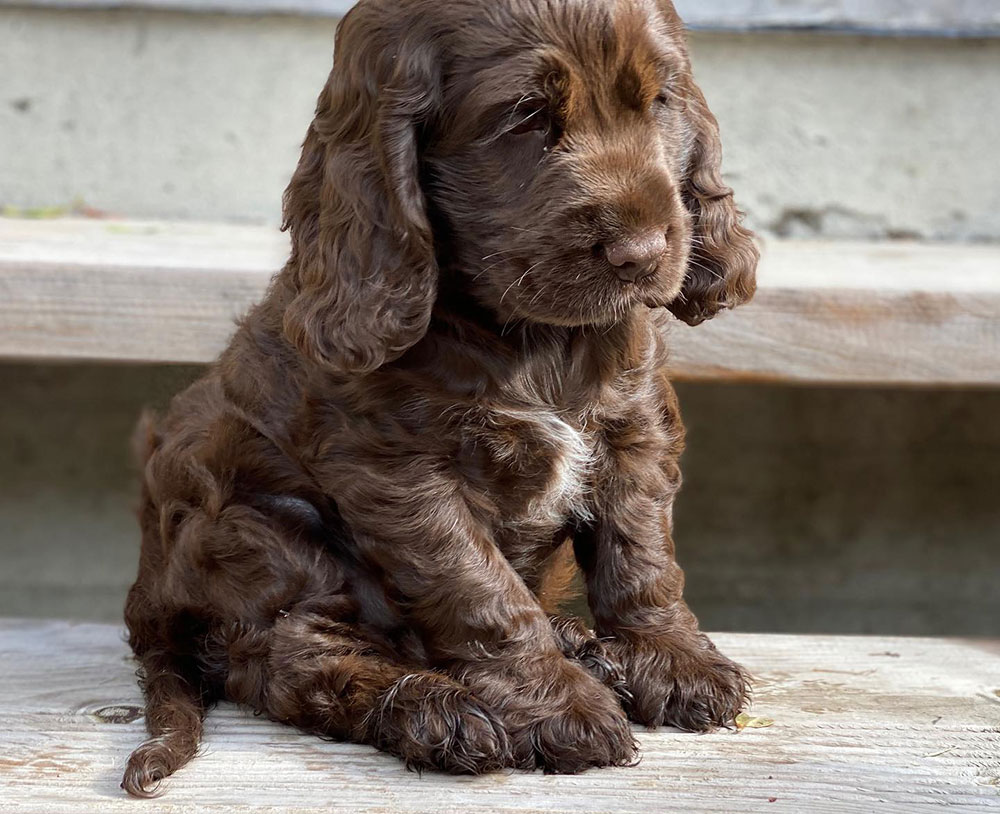
Unless you have a friend who’s willing to watch your dog for you for free, a pet sitter is a viable option (with many puppy sitting experts available on Airtasker). An hour of sitting would cost you at least £10. If you need someone to walk your dog, this averages at around £15. You can also leave your dog at a daycare where he gets food, playtime with other dogs, and plenty of human affection. Prices range depending on how long you plan on leaving your dog. Expect to pay around £20-£30 for a full day.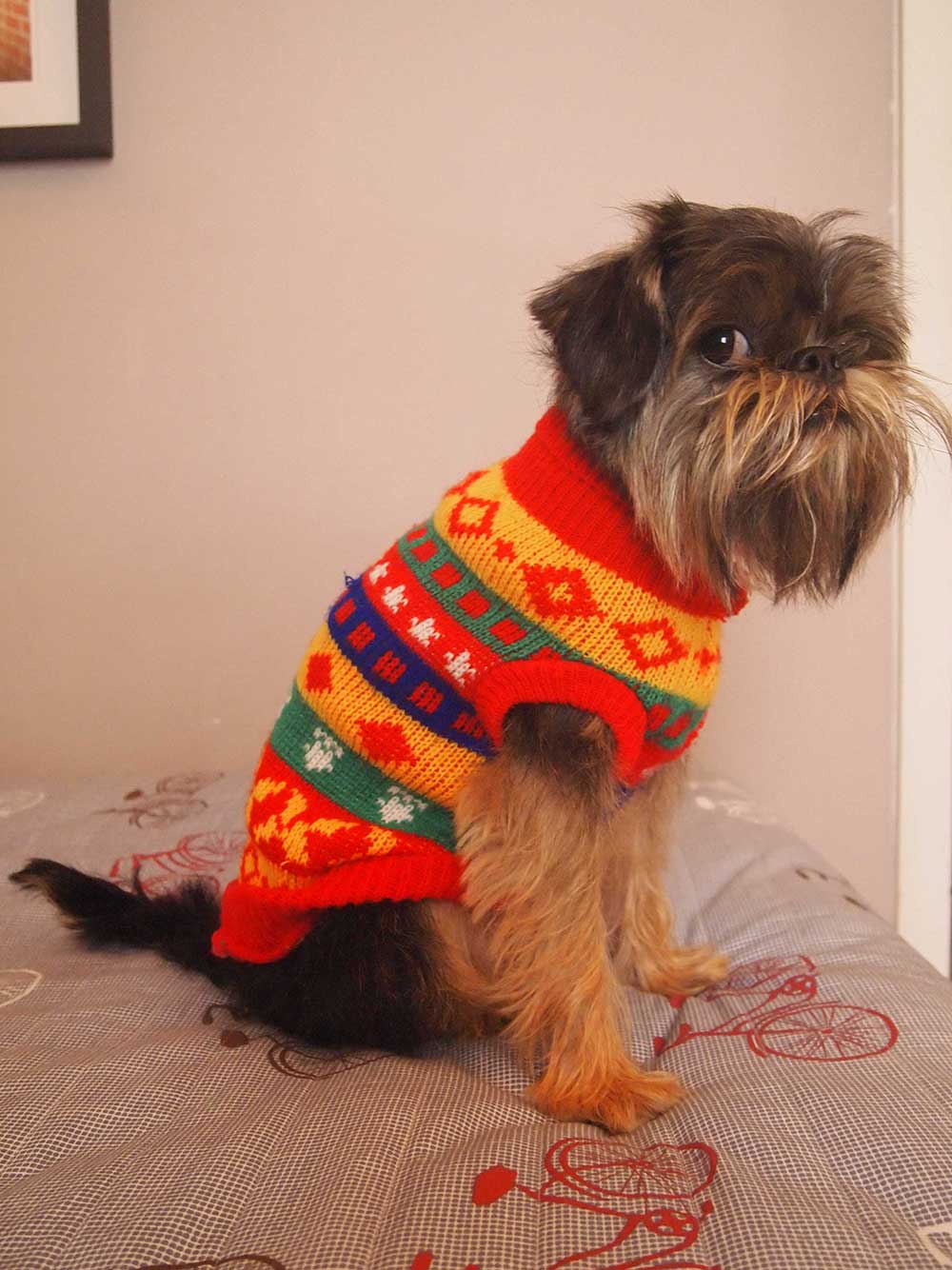
Some pet owners love to bring their pets along with them on their travels. Travelling with a dog within UK countries is relatively simple and doesn’t require much except for a collar and leash. However, if you decide to take your pet with you on a flight this would require a microchip (£20), a pet passport (£120), and an up-to-date rabies vaccine (£45). The cost still doesn’t cover aeroplane tickets, which can range from £25 to £1,000, crate, health certificate, and custom and quarantine fees. Depending on where you’re taking your dog, either within the UK or overseas, costs will also depend on the rules of the place you’re visiting.
However, if taking your pet with you proves to be a challenge, you can board your dog in a pet hotel where he can be taken care of while you’re away. Boarding can run at around £30 per night.
How much does it cost to have a cat?
Cats may be cheaper to take care of, but they still need almost the same essentials: medical care, food, grooming, and equipment.
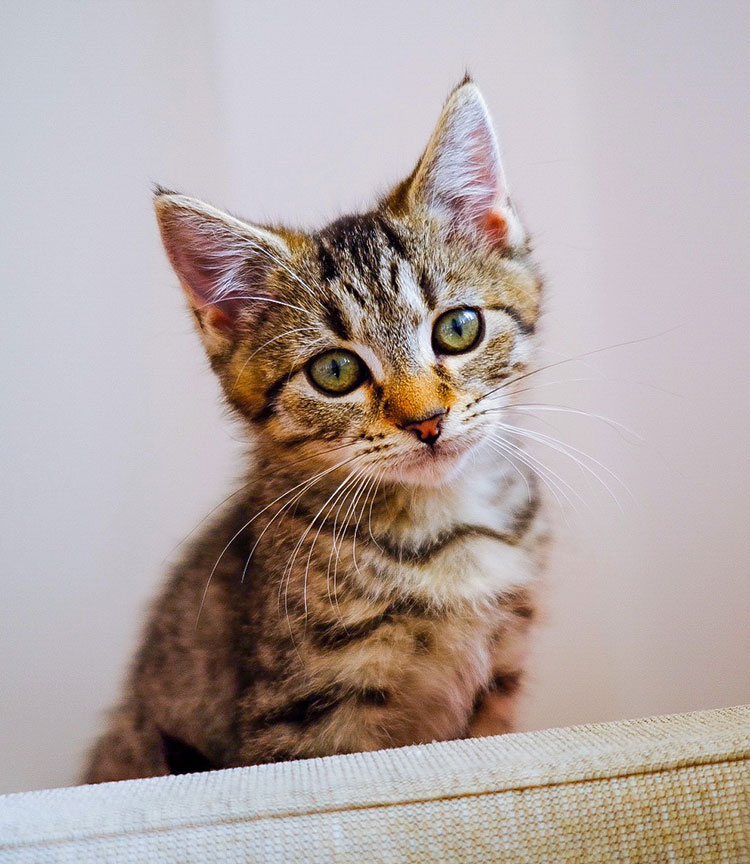
Medical costs
Cats have a similar set of medical needs to dogs. They also need to get vaccinated, have flea control treatments, receive ear and dental care, and get spayed/neutered.
In the United Kingdom, the core vaccines a cat needs to get are for feline enteritis, influenza, and leukemia. Other vaccines you can give your cat are for rhinotracheitis, chlamydophila, and rabies. These vaccinations can cost around £53, while booster shots average at £41. If you’re adopting a cat from a shelter, they would have been more or less vaccinated already.
Cat teeth need to be kept clean throughout their lives. Elderly cats are more susceptible to oral diseases, so it’s best to start dental care while they’re young. Cats can also be victims of ear mites and infections, so regular cleaning is necessary to avoid possible complications.
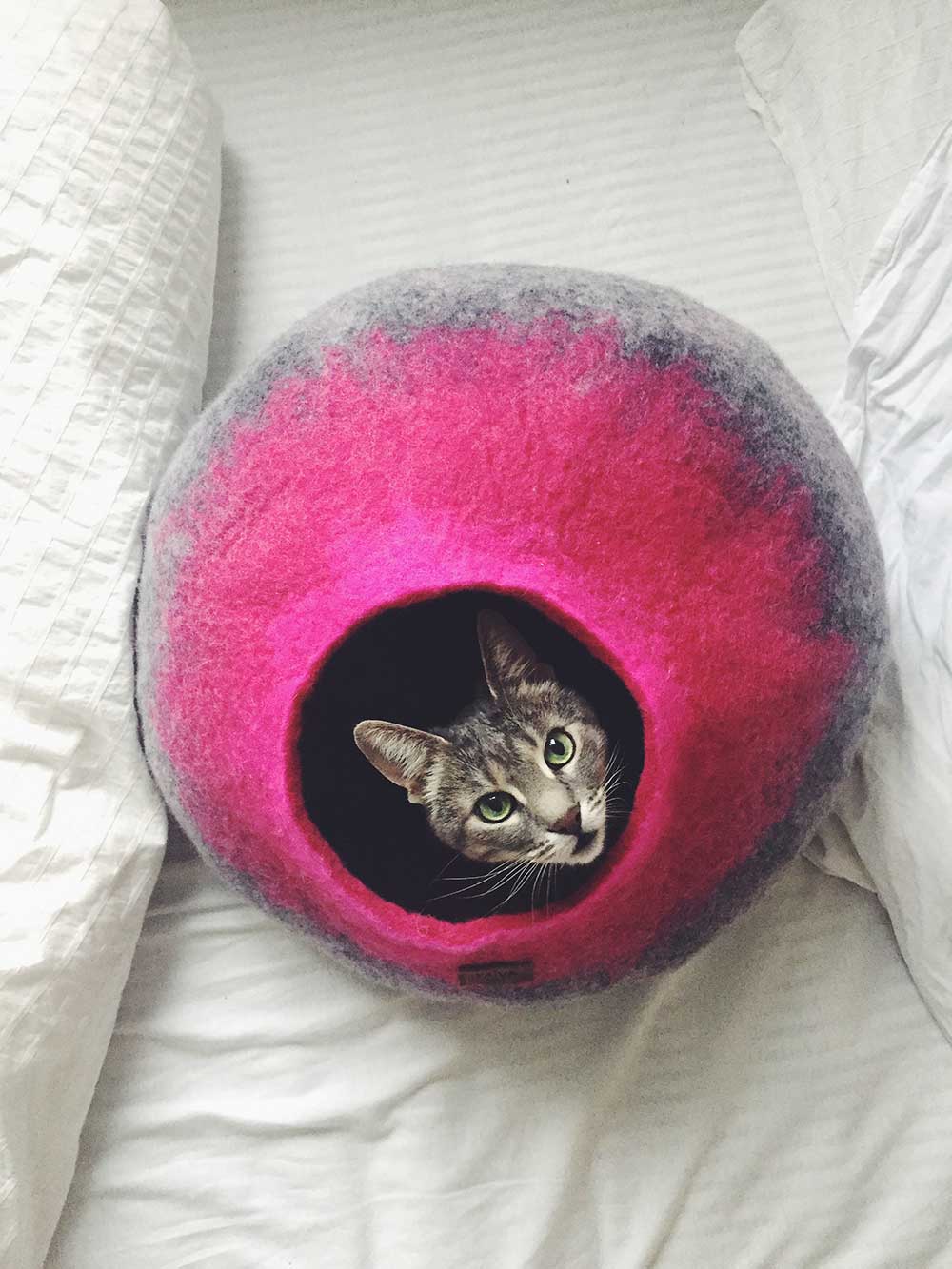
You’d want your cat scratching on a scratch post rather than himself. Fleas can be unbearable for cats and over-scratching can lead to injury. Invest in £10 to £30 per month for either topical or oral flea prevention treatments for your feline friend.
Spaying your cat would amount to £50-£100, while neutering can run from £40-£80.
To keep your cat healthy, a visit to the vet for a checkup once or twice a year is a must. Vet costs for cats run at around £30-£40.
Cat Grooming
Cats keep themselves clean most of the time, but that doesn’t mean they don’t need any help. Long-haired cats require frequent brushing, some need a cut here and there, and all cats need their nails to be trimmed regularly.
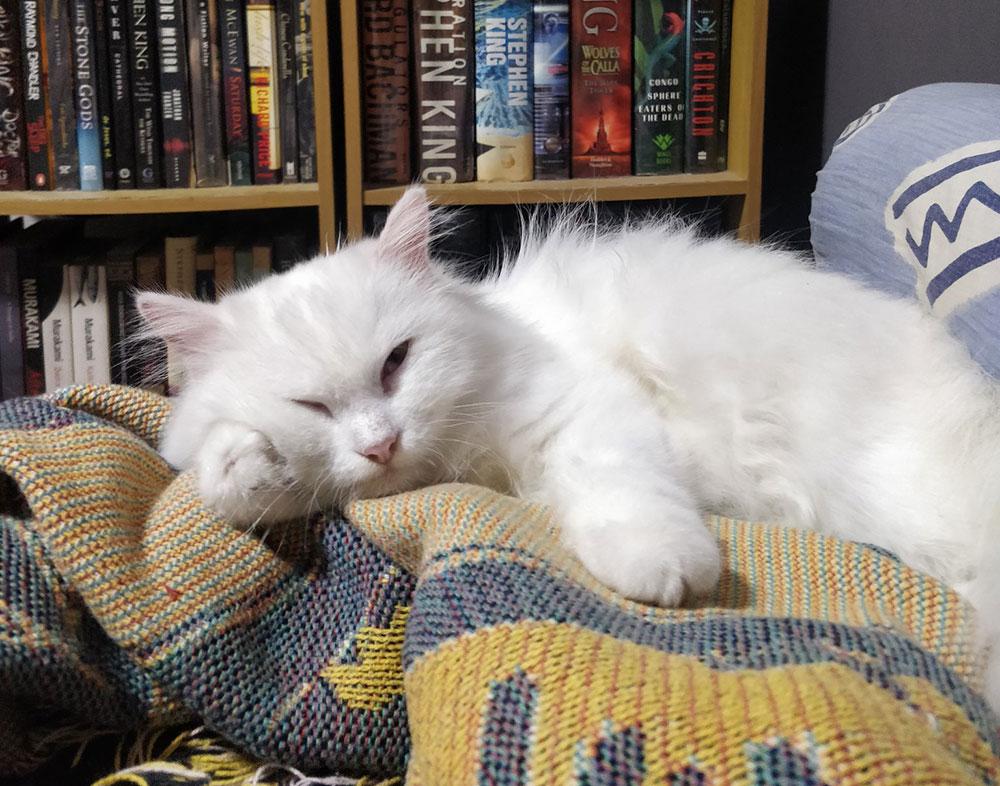
If it’s a struggle to bathe your cat at home (some of them just really don’t like water), a professional cat bath should cost £20-£40. A nail trim shouldn’t go over £10, but investing in a good scratching post helps keep your cat’s nails at bay.
Cat Food
How much does a cat cost per month? A factor that dictates this is the food you buy for your cat. Whether it’s a bag of kibble or a tin of tuna, cats need a healthy diet. What they eat affects their energy, weight, fur, and lifespan. Whatever your budget, expect to shell out £13-£55 per month for cat food. Cost will increase if you decide to go on an all-premium diet for your pet.
Cat Equipment
Bringing a cat into your home requires some necessities. Feeding your cat needs food and water bowls. A collar with your cat’s name and your contact details are important, especially if they like to roam outside your house. Getting them a leash keeps them close to you when you take them out for a walk (because some cats like going on strolls, too).
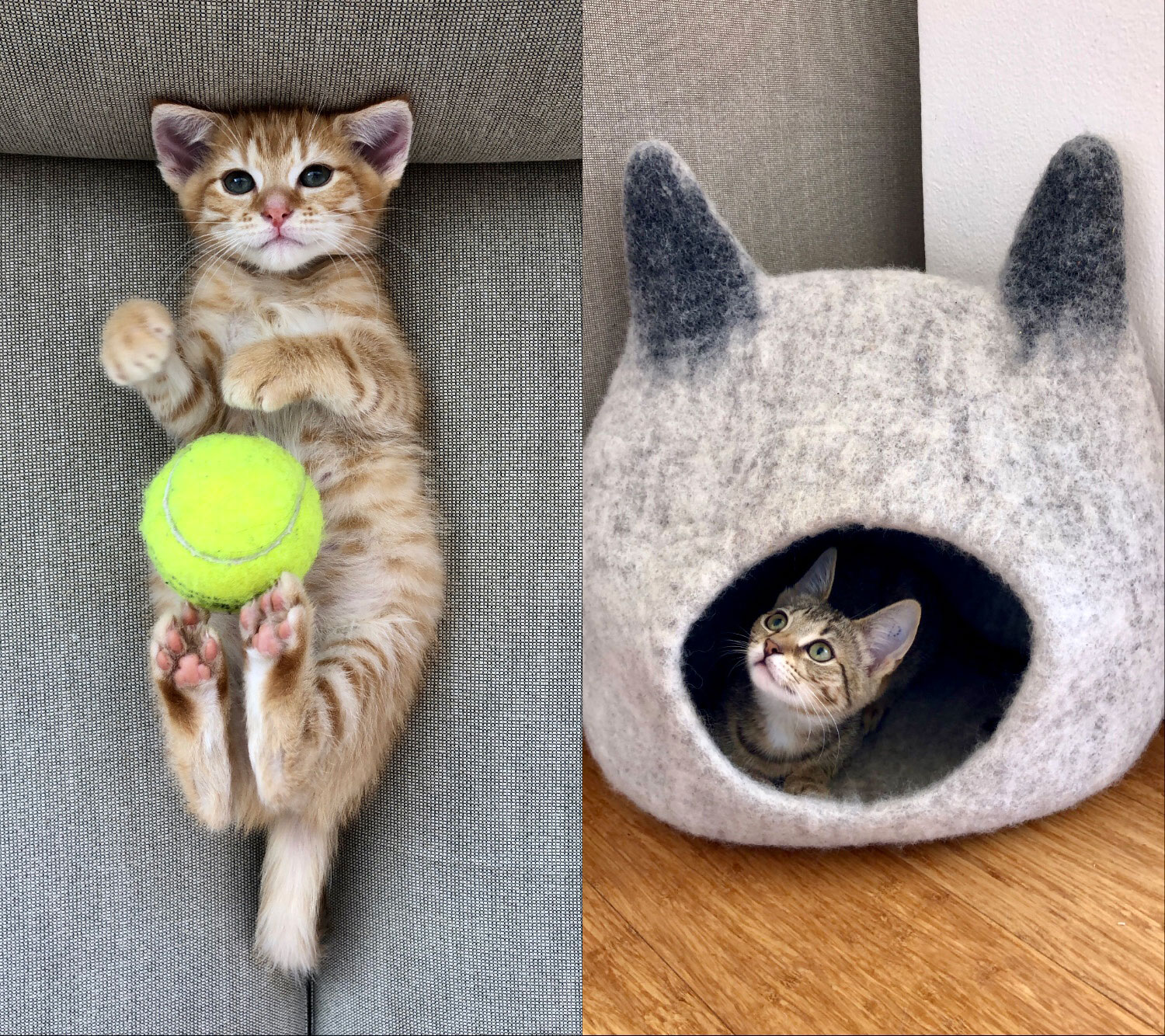
A litter box and litter are vital. Make sure to get a box that fits your cat to avoid getting litter, or worse things, scattered all over the floor. Boxes with higher walls help keep the dirt in.
A carrier is needed for days you need to take your cat around, like vet checkups.
Cats can pretty much entertain themselves, but some added fun makes life exciting for them. A scratch post keeps their claws limited to one spot (if you’re lucky) and toys add thrill during playtime.
| Cat necessities | Average costs |
|---|---|
| Food and water bowls | £2-£30 |
| Leash and collar | £10-50 |
| Litter | £2-£9 |
| Litter box | £15-£35 |
| Carrier | £15-£50 |
| Scratching post | £5-£100 |
| Toys | £1-£20 |
What other cat costs should I know?
Cats are quite self-sufficient pets. You can leave them for a day or two with a bowl of food and water and they’ll be fine. However, in cases where you need to be out of the house for longer periods, you can board your cat.
How much to board a cat depends on the cattery’s location and for long you’ll leave your pet there. A night generally costs £18-£25. Another option is to hire a sitter to watch your cat at home. They usually charge between £10-£15 per day, depending on their experience.
What other things should I consider before getting a pet?
Setting up an emergency fund is a financial must, even for your pets. Accidents can happen and it’s better to be prepared rather than falling into pet debt. Setting aside £200 per year can save your pet when unforeseen circumstances arise.
Apart from setting up an emergency fund, consider getting pet insurance as well. Policy prices vary depending on your pet’s breed, your location, and how much you’d like your insurance to cover. Depending on the insurance arrangement, purchasing a policy can start as low as £15 per month.
Tips to cut costs
Owning a pet and knowing how to financially prepare for them is important to ensure you don’t encounter any surprises down the track.
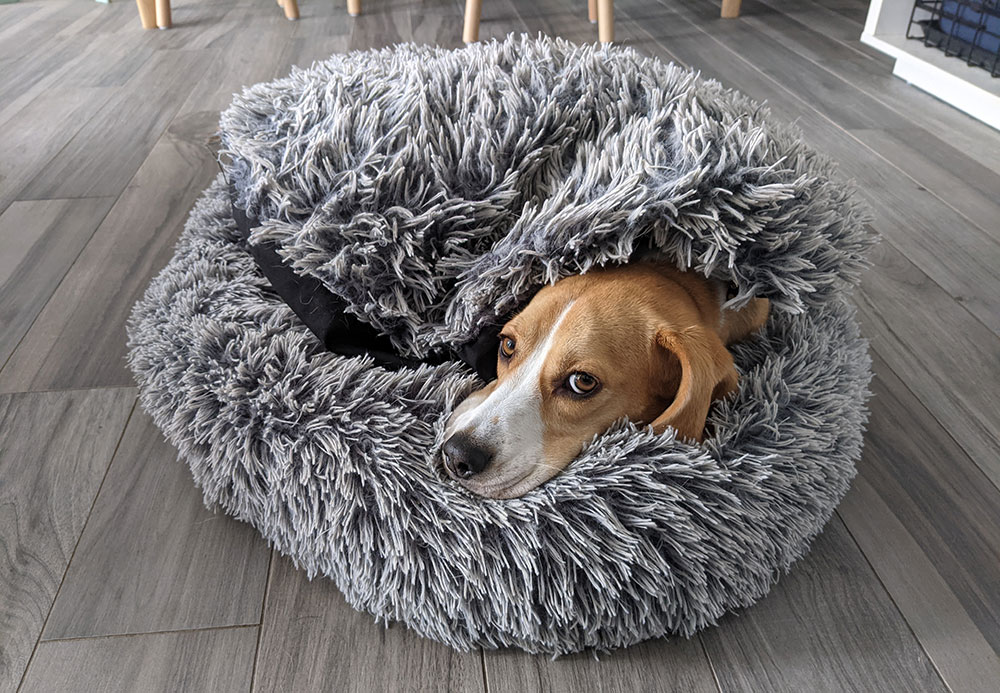
Here are some budgeting tips to help cut costs:
1. Buy in bulk
This saves you money and time, without constantly travelling to the pet store. Food and kitty litter sold in large quantities come cheaper in the long run versus having to purchase small bags every month.
2. Be your pet’s groomer
A grooming brush and shears can cost less than £10 apiece, while a pair of nail clippers are sold at around £15. Unless your dog dislikes it when you get handsy with them, doing your pet’s grooming at home can save you a lot.
3. Don’t forget dental hygiene
Getting your pet his own toothbrush and dental sticks and chews help prevent teeth and gum issues and visits to the dentist. Brushing their teeth at least twice a week is enough.
4. Go DIY
You don’t need to spend hundreds on equipment, toys, and treats! You can build a litter box out of an old storage box, turn old socks into toys, and make treats at home using what’s in the pantry (just make sure it’s safe to eat for your pet). You can spoil your pet without breaking the bank—all you need is some creativity and innovation.
5. Consider pet insurance
Continue preparing for your pet by investing in pet insurance. Despite saving up for an emergency pet fund, the benefits of owning an insurance policy can help alleviate the overall cost of unexpected medical expenses. Treatment and surgery can reach thousands and a little financial insurance can go a long way.
Read up on various pet insurance policies and select the one that best suits your needs and budget. Not all policies are the same, so it’s best to double-check the entire contract, especially the fine print.
Some policies include vaccinations, preventative medical expenses, and annual medical exams. Some, on the other hand, don’t cover common health issues in dogs like hip dysplasia. Understand coverage limitations, deductibles, and what’s included and not included in the policy. Don’t be afraid to ask the insurance company for a quotation and feel free to compare policies to see what’s best for you and your pet.
6. Adopt!
Adopting instantly cuts your cost from the get-go. Vaccinations are updated up until you adopt them, while initial medical costs and spaying/neutering would have already been covered. You’d be saving at least £700 for a dog and £200 for a cat in the first year of owning them just by taking someone home from a shelter.
However, adopting isn’t just about minimising your overall budget. Rescue animals in shelters are strays and abandoned pets who might have never experienced affection in their entire lives. Adopting one and giving them all the love and support they need becomes a worthwhile experience for you and your pet.
Adopting a pet doesn’t just mean you’ll be saving on cost; you end up saving a life as well.
So what’s more affordable? A cat or a dog?
The cost for dog and cat care varies. Prices differ depending on where you live, the brands you buy, and how often you shop. It’s good to remember the three P’s before getting a pet and how this affects your budget: preference, prevention, and planning.
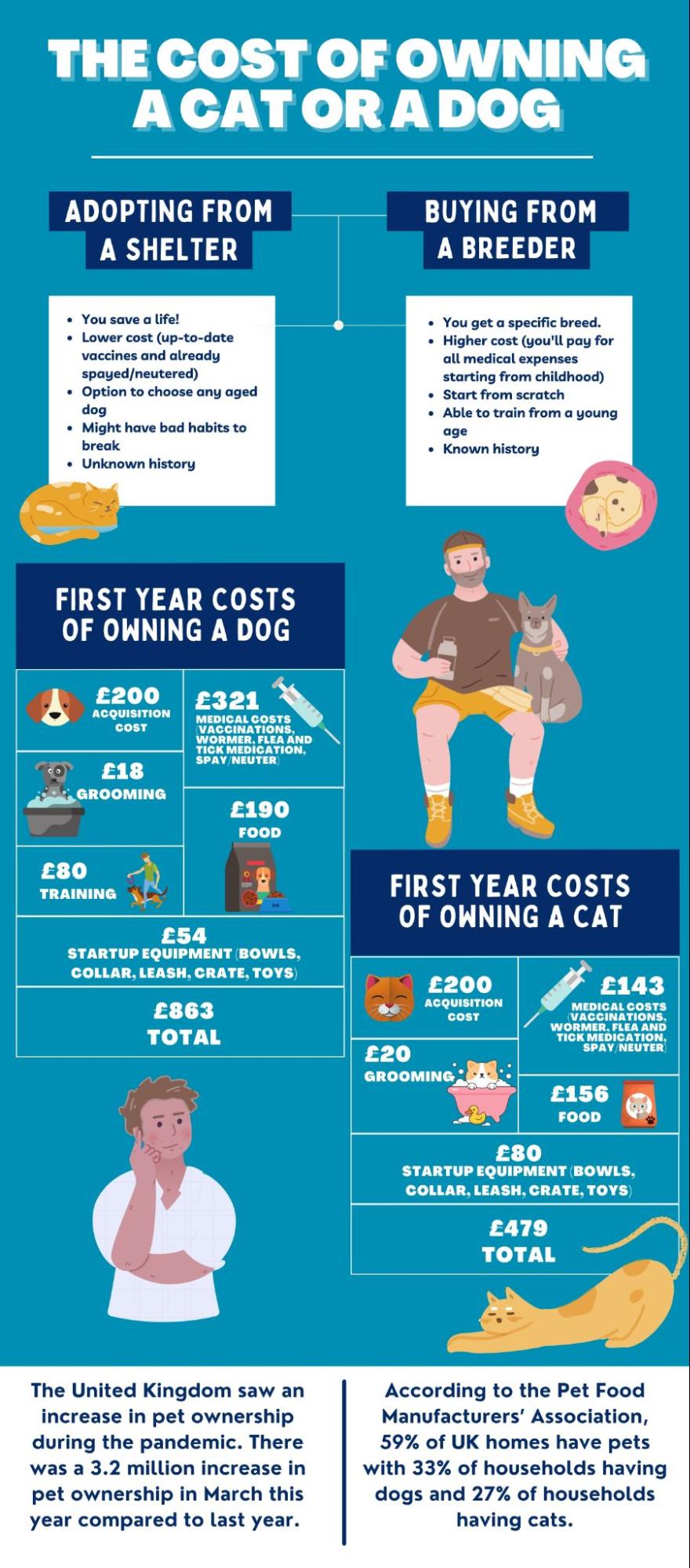
Every pet is different. It’s paw-sible that your dog likes dry food, while your neighbour’s dog likes it from the can. Your cat hates bath time, but your friend’s cat is feline good in the water. Pets have personalities and with that comes preference. Other times, this preference is born out of medical needs, such as if your pet needs a prescribed food diet.
Prevention is always better than cure. Get your pet vaccinated, schedule regular checkups, clean their ears and teeth, use anti-tick and flea medication, and feed them a healthy diet. Some accidents and emergencies happen out of your control, but it still helps to try avoiding them.
Failure to prepare is preparing to fail. Plan things so you don’t have to scurry about looking for money to fund your pet’s needs. Set aside money for all your regular pet provisions, such as food, grooming, emergency fund, insurance, and medical expenses. Caring for a pet certainly is a financial challenge, but there are ways to make it bearable for you and your wallet.
You may ask yourself now: which is better, cats or dogs?
And the answer is ANY!
Taking in a pet means welcoming and loving another member of the family. Love isn’t just about the cuddles you give your pet; it’s also about providing them with a safe home, a healthy and long life, and attention to their needs. Whichever one you choose, they’ll certainly claw (or paw) their way into your heart.
Related articles
Related price guides

